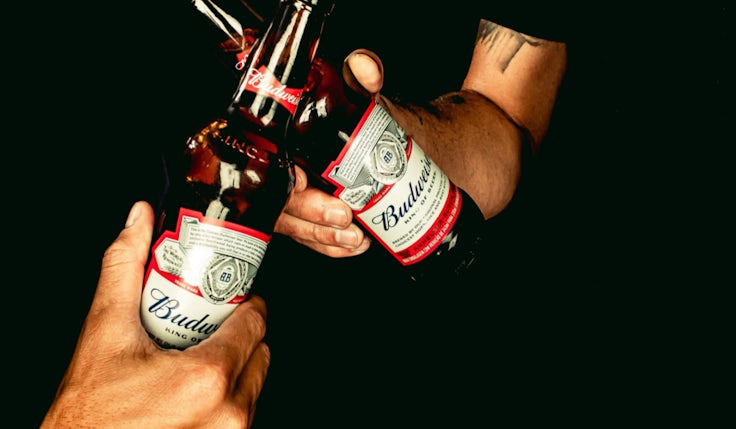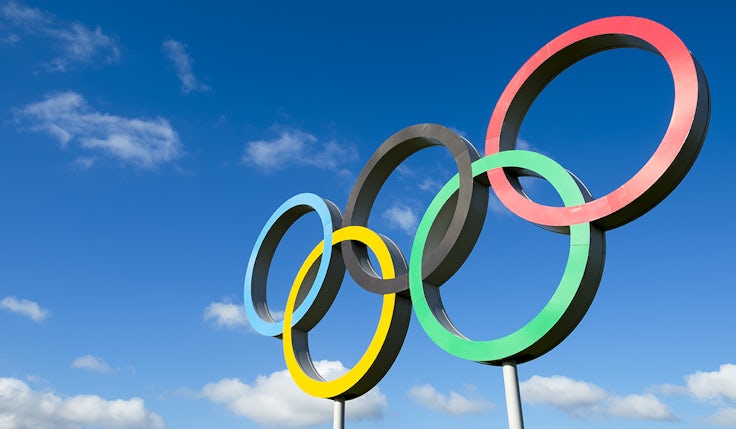AB InBev: Building brands is like a marriage
Agencies have a 50/50 responsibility to co-own the route to “greatness”, says global CMO Marcel Marcondes.

Brands have a responsibility to use creativity effectively, which starts with co-owning the responsibility to devise great work with their agencies, argues AB InBev global CMO Marcel Marcondes.
“Building brands is like marriage. It’s always a 50/50 responsibility between us clients and agencies. We co-own this thing, so this is why we take it extremely seriously,” he told the audience at Cannes Lions today (18 June).
“To deliver greatness you need to take risks. To take risks, you need to have trust and to build trust it takes time.”
Describing the beer giant’s roster of agencies as “superheroes”, Marcondes discussed the value of nurturing these relationships to deliver a competitive advantage through creative firepower.
“This is why the group of key agency partners that we have – we meet frequently, every week, every year – is called the Justice League. This is where superheroes meet and that’s what we do,” he said.
Focusing on the commercial imperative, Marcondes described creativity as a means to an end to solve business and consumer problems. Internally, AB InBev runs an initiative called CreativeX, which the business operates worldwide to train marketers on how to “ask for creativity” and judge the results.
If you really believe that creativity is a true competitive advantage if used the right way, we need to make it an always on practice in the way we work every day.
Marcel Marcondes, AB InBev
The CreativeX programme spans training under the Creative Critique banner, the Creative Braintrust, which defines the process, a Creative Council to assess the work and internal CreativeX Awards. Formalising the creative process means the business doesn’t fall into the trap on relying on a small group of people to drive all the ideas, said Marcondes.
“We don’t do creativity for creativity’s sake. Creativity needs to have a purpose, a reason, a mission. And this is what really makes creativity a competitive advantage and to get to that point, we can’t depend on one or two people with a special talent. We need to have a process,” he argued.
Recognising AB InBev’s role as a market leader in the drinks industry, Marcondes explained how the endgame is always to achieve organic growth, a strategic framework under which the entire company operates. This organic growth means accelerating through brands, he argued, which then become the most important asset of any organisation.
Likening the experience of driving organic growth to being in the cockpit of a fighter jet, Marcondes explained there are pressures involved in trying to “land the plane”.
“It’s tight, it’s fast, there’s G force in our heads. We need to take action, make decisions and we need to know how to drive this airplane,” he said.
The mantra at AB InBev is that every piece of work needs to connect to value creation and the team need to be “vigilant” that marketing builds stronger brands, which is why brand equity is an important metric, Marcondes added.
Simplicity rules
This focus on brand building extends across the wider portfolio of 500 brands, more than 20 of which generate billions of dollars each. However, on a market-by-market basis, research showed no more than four or five brands were really driving growth.
To address this issue, AB InBev created the Mega Brands programme, which categorised every brand in the portfolio globally, giving them specific roles. The funnel starts with ‘tail brands’ to be deprioritised or “deleted”, then ‘sustain brands’ that need to be defended, ‘expansion brands’ ripe for acceleration, and ‘mega brands’ that deliver long-term growth.
“That’s exactly our North Star. By doing that we start taking action, for example, we reduce investments in the tail brands. They start to have a lower weight in our portfolio. And, as a consequence of that, we can shift investments towards the mega brands,” said Marcondes.
“They start to become bigger, better, stronger, with stronger equity. And then we really play to win. And after doing this a couple of years, we start to see the reaction, we start to see the dividends being paid.”
Understanding which brands are resonating with consumers globally is central to the strategy, he explained, as the company aims to become “obsessed” by consumer behaviour. AB InBev has established a new rule that everyone in the leadership team must spend at least 30 hours a year in face-to-face contact with consumers to “build intimacy”.
AB InBev to ‘disproportionately’ allocate marketing spend behind ‘megabrands’
Thinking about consumer insight, Marcondes used the example of the Ze Delivery app in Brazil and its connection to football. The app offered every football fan 50% off their monthly fan membership fee in coupons to order beer for delivery. Despite believing the service would be a success, consumers were totally indifferent.
Based on insight about the hatred football fans have for their local rivals, AB InBev choose the biggest derby in Brazil the Grenal – played out between Grêmio and Internacional – to tell consumers they would give their Ze Delivery cashback to their rival’s fans if they didn’t use it.
The message drove 80% new users for the cashback service and more than 40% growth in orders, generating the highest number of orders ever recorded on the app.
This work in Brazil is part of a wider ambition to deliver “bold experiences” to consumers, especially the younger generation.
“This new generation is looking at inflation. It’s looking at the cost of education. It’s looking at a post-pandemic life and everything they have been through. And what are they doing? They’re living for today,” said Marcondes.
“I was having a great chat with Professor Scott Galloway and he told me something amazing. He said: ‘Marcel, this is the first adult generation ever that instead of saving money for a mortgage, they’re saving money to buy a ticket for Taylor Swift.’ That’s exactly what has happened, right? We are taking that very seriously.”
Another thing the marketers at AB InBev are taking seriously is not resting on their creative laurels. In 2023, the beer giant was named Cannes Lions Creative Marketer of the Year, a source of pride and motivation for Marcondes. That said, the AB InBev global marketing boss is clear the first priority for his team is driving growth.
“I remember when we became the Creative Marketer of the Year, Simon [Cook, CEO of Cannes Lions] said: ‘Guys, congratulations but no one has ever done that more than once. No one stays there.’ So, it’s very important for us, we take it very seriously to drive consistency,” he added.
“And this is the most important thing, because if you really believe that creativity is a true competitive advantage if used the right way, we need to make it an always on practice in the way we work every day.”







